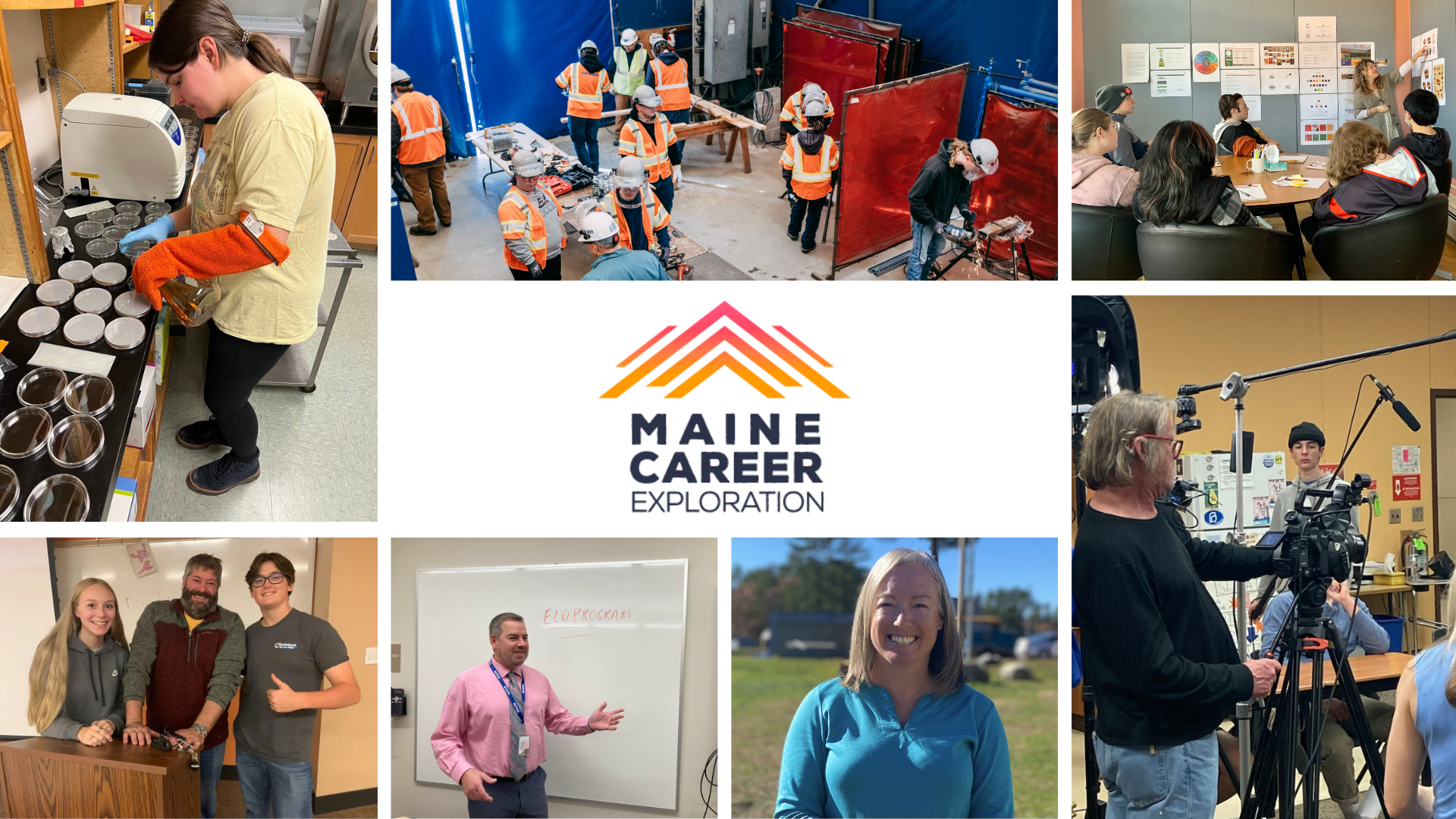How to Make a Young Person’s Work Experience Positive

Kathryn Ference has a key role in helping Maine’s tourism and hospitality businesses employ Maine’s youth and she has a wealth of valuable knowledge so we wanted to ask her some questions about how an employer can create a work experience that is successful and rewarding for both the employee and the employer.
What is your job with the Maine Tourism Association?
My title is Director of Workforce Development, but I do a lot of different things. MTA is a non-profit trade association that represents about 1500 member businesses across the state of Maine. My job is to support these businesses’ recruiting and retention efforts; mostly, we do this by connecting youth ages 16-24 with job opportunities in the industry through field trips, job shadows, and internships. We also offer educational opportunities for both employers and employees.
What do you often tell businesses about creating a successful work experience for a youth?
The thing I make sure to stress to all of our business partners is to not simply think of this as a job but also as a mentoring opportunity. Especially in the tourism industry, there’s a strong tendency to think of youth jobs as a temporary gig before moving into a “real” career. But tourism is full of “real” careers, and this is our chance to educate young people about these opportunities!
Are there things employers often don’t think about/overlook that are important when offering a student an internship/summer job?
Flexibility in scheduling is increasingly important to employees of every age these days, but it’s especially important to young people. Some employers insist that their young employees have completely open availability for their work, but that just isn’t the world we live in anymore. Young people are balancing school, extracurricular activities, and time with friends and family in addition to work, and they will often quit a job or internship if it doesn’t fit into that context.
In addition, transportation can be a real issue for young people–according to the Federal Highway Administration, the share of teenagers with driver’s licenses in the 16-19 age group declined from 65% to just under 40% in 2021. This isn’t just laziness. The rising cost of cars, insurance, and gas due to inflation have had an impact, and the economics of finding a car, insuring it, and learning to drive it can be daunting, especially for teens from lower-income families. Given this, if you are able to provide some transportation, provide housing, and/or offer remote opportunities for internships, that will make your opportunities much more feasible for youth.
Tell us about the diversity of career options there are to consider: part-time, full-time, apprenticeship, etc?
Part-time jobs in the hospitality and retail industry is historically how most youth have spent their summers working - in fact, ⅓ of US workers say their first job was in a restaurant and another ⅓ say their first job was in retail. These jobs are critical to the services sector and also a great way for young people to learn entry level work skills like customer service, positive work ethic, and time management. Seasonal work is also an important part of the industry, given the nature of Maine’s seasons. Many people who work seasonally will use that opportunity to travel–they might work as a chair lift operator at a ski resort in the winter and then a white water rafting guide in the summer, for example. When people think about tourism, these part-time and seasonal opportunities are usually what comes to mind first, but there are also thousands of year-round, full-time, benefitted positions in the tourism industry. In fact, for many professionals, these part-time and seasonal jobs became full-time, year-round careers through internal promotions. Internships and apprenticeships are a relatively new but growing part of the industry.
What are things employers can do to make the work experience positive for both them and the student, like setting expectations?
Setting clear expectations up front is absolutely essential to a successful work experience on both sides. In addition, employers will sometimes assume students know things about the workplace that are obvious and are “common sense” or “common knowledge,” but sometimes young people aren’t actually aware of them, like customer service skills and communication skills, so coaching on these things before the student begins working can be very helpful. (For example, being very explicit about the rules of phone use at the company while on the job before the work begins.)
Are there any classic Dos & Don’ts?
- Do be transparent, up front, and clear with duties, responsibilities, and expectations
- Do offer positive reinforcement and praise when students meet those expectations
- Do offer grace and feedback for improvement when expectations aren’t met
- Don’t just give youth menial tasks and grunt work–while some of that is inevitable, do give youth an opportunity to push themselves, learn new skills, and make meaningful contributions to your company
Is there a work experience success story you can share?
We have several! https://www.youtube.com/playlist?list=PLcQ3Fx9drD4IKgW3YUh1oIMZEIhpeg93w
Are there state or federal resources employers should know about?
Of course, be sure you’re familiar with Maine’s child labor laws: https://www.maine.gov/labor/labor_laws/minorsguide/
How can a business find young people to work for them?
We definitely recommend employers in any tourism-related sectors post their internship opportunities to our internship database (found at www.tourismforme.com/internships). Employers can do so through this form: https://www.tourismforme.com/business-form
High school career fairs are a great way to connect directly with nearby young people. You can contact your local high schools directly, or email the Maine Tourism Association–we keep a list of upcoming events and sign-up information.


